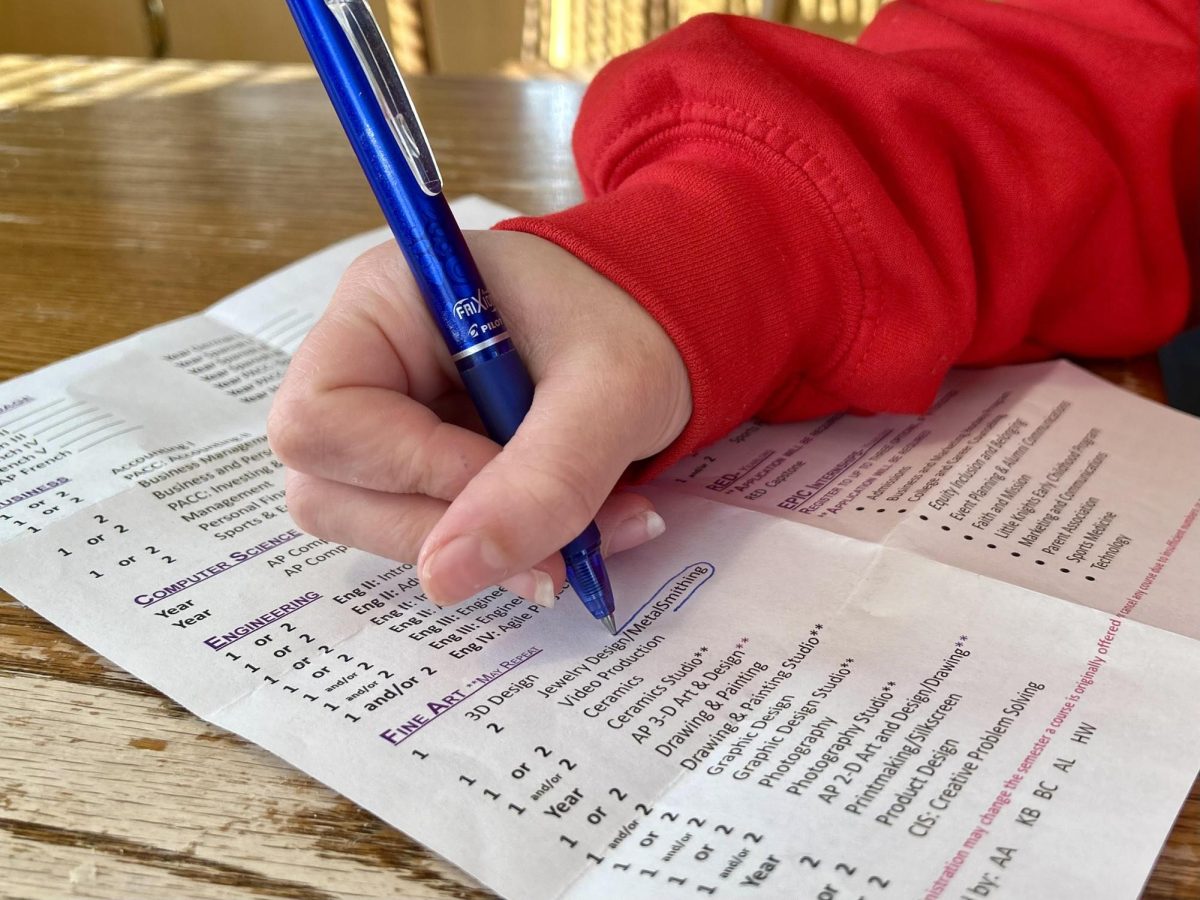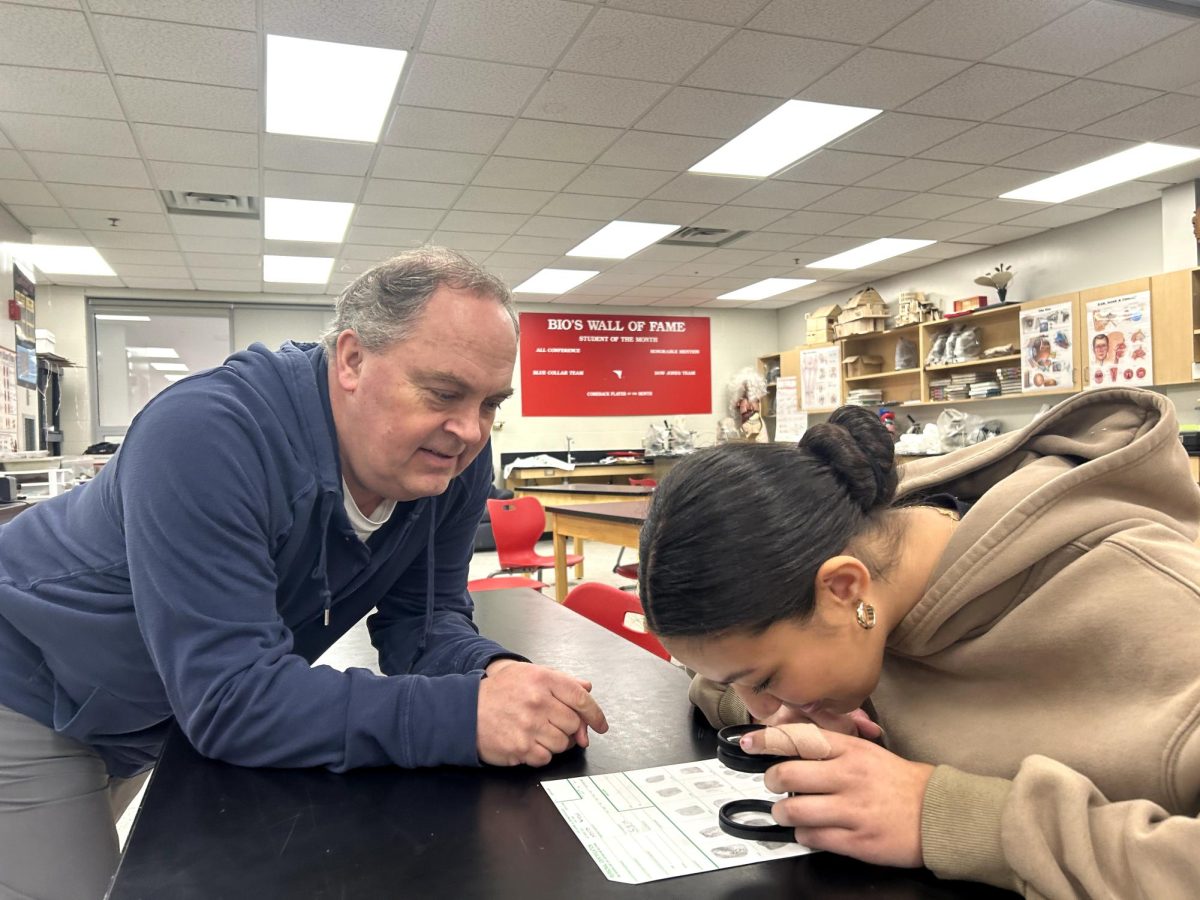Many students decide to sniffle and cough their way through the school day because they find their academics and activities more important than their health. However, when students push their way through the school day while sick, the pressure to keep track of their studies and schedule becomes almost unbearable.
The pressure for perfect attendance pushes students to come to school sick. “I know there will be times that I am sick during the school year and should probably stay at home, but I don’t want to let my health affect and ruin the perfect attendance I have kept for two years already,” junior Nick Birney said.
The average number of students who miss school each day ranges from 10 to 13. However, now that winter is approaching, Mrs. Kathy Jacobson said there will definitely be more absences than earlier in the year.
There are some guidelines to follow regarding when someone is too unhealthy to come to school. “Students should not come in if they have had a fever or have thrown up in the past 24 hours,” Mrs. Jacobson said.
Sophomore Kendel Malcolm, who had a poor immune system for years and has been diagnosed as a carrier of the strep throat virus, decides to come to school sick for different factors other than her health. “I still come to school because it is a lot of work to make up different homework assignments and tests,” Malcolm said.
Although it seems best to push through the day, Malcolm admits it’s difficult to be alert and proactive in class. “I came to school sick and sat in the back of the classroom and my teacher got mad at me because I looked inattentive. I want to come to class, but it is definitely hard sometimes to focus on academics when you are really not feeling well,” Malcolm said.
Participation in class also decreases significantly when a student comes to school sick. If a student has difficulty participating in class because of health, they are not benefiting themselves or their classmates by coming to school. “Students need to be able to contribute the the classroom, if they can’t, it doesn’t really help the situation of coming to school sick,” Mrs. Sharon Ingalls, BSM Health Aid, said.
Some students, however, prefer to stay at home when they are not feeling their best and also do not find it difficult to stay caught up in school. “It’s easier to stay at home and recover than getting more sick. Also, I take advantage of the resources such as Haiku to stay updated on my school work,” sophomore Meron Abraham said.
In fact, healthy students are bothered by the fact that their classmates come to school while contagious. “It’s disgusting when my peers come in sick; they should stay at home, especially if they’re contagious. They can get other students sick and they can get me sick,” sophomore Colleen Alexander said.
Other students simply do not mind how healthy their classmates are when they come to school, understanding that viruses and sickness will be evident in life and you can’t always control the situation. “I don’t care, there will always be sick people at school, so one more sick person won’t change anything,” junior Zoe Cave said.
Although not a marked rise, Mrs. Ingalls has seen more students coming to school under the weather for a number of reasons. “With the pressure of academics, activities, teachers, and peers, students can be encouraged to give the day a try from parents or [on their own],” Mrs. Ingalls said.
The possibility of further damage to the health of a student increases significantly if they try to come to school when they’re sick. “From a health perspective, I think it is better for students to stay home than run the risk of things getting worse and consequently having to miss school even more,” Mrs. Ingalls said.
If a student feels the need to come to school with a bad cold, they should be aware of keeping themselves as healthy as possible by washing their hands or coughing into their elbow for the people around them. This can help stop the spread of germs and keep the student from becoming more sick or even catching a different virus. “It is mostly about students being diligent to take care of themselves and their symptoms in order to keep up with their academics, sports, and activities,” Mrs. Ingalls said.




































![Teacher Lore: Ms. Rathmanner [Podcast]](https://bsmknighterrant.org/wp-content/uploads/2025/03/teacherlorelogo-1200x685.png)





